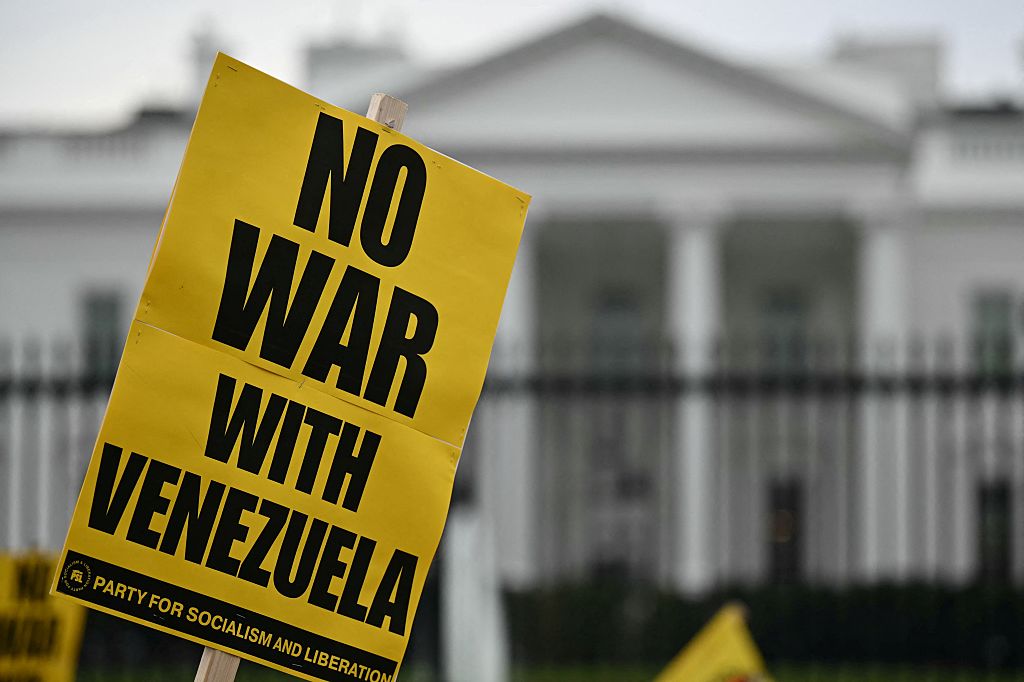The U.S. is set to launch new operations against Venezuela and its President Nicolás Maduro, Reuters reported over the weekend, as U.S. President Donald Trump’s Administration escalates what increasingly looks like a war against the Latin American nation over its alleged role in the international narcotics trade.
[time-brightcove not-tgx=”true”]
Since Sept. 2, U.S. military strikes on alleged drug boats have reportedly killed at least 83 people in the Caribbean, raising questions about the legality of such operations and whether Trump is seeking a fight elsewhere to ease political pressures at home.
Some observers even think Trump’s ultimate goal may be regime change in Venezuela, seeking to force out the authoritarian Maduro, whose most recent election successive U.S. Administrations have not recognized as legitimate, and whom the State Department alleges to be the head of a cartel recently designated a terrorist organization—a move Defense Secretary Pete Hegseth said Friday brings “new options” to how the U.S. combats “narco-terrorism” in the region. Nothing, including a potential land-based operation, Hegseth said, was “off the table.”
But the thought of waging a new war with Venezuela is unpopular in the U.S.
A CBS News/YouGov poll conducted from Nov. 19-21 showed that 70% of respondents opposed U.S. military action in the South American country, and 56% believe any military action would have no effect on the amount of drugs entering the U.S.
And a November poll from Reuters and Ipsos also found that a majority of Americans believe the risks of U.S. military action in Venezuela outweigh the benefits, though attitudes largely split along party lines, with Republicans more supportive.
Some prominent Republicans, however, have voiced their own opposition.
Sen. Rand Paul (R, Ky.) on Sunday warned of potential fractures within the GOP, where some members have already questioned the Administration’s boat-bombing campaign, echoing congressional Democrats’ misgivings about Trump’s actions in Venezuela.
“I think once there’s an invasion of Venezuela,” said Paul on CBS News, “I think you’ll see a splintering and a fracturing of the movement that has supported the President.”
“I think a lot of people, including myself,” he explained, “were attracted to the President because of his reticence to get us involved in foreign war.”
Paul, who was one of two Republicans (along with Alaska’s Sen. Lisa Murkowski) who voted with Senate Democrats in a failed bid to require congressional approval before Trump takes any military action against Venezuela, criticized the Administration’s latest terrorist designation on Cartel de los Soles, saying: “I think by doing this, they’re pretending as if we are at war. They’re pretending as if they’ve gotten some imprimatur to do what they want.”
Speaking to the AFP, Mexico-based academic Juan Manuel Trak said the terrorist designation, which went into effect Monday, “creates the perception that some kind of attack is almost imminent” in Venezuela. Trump said last week that the designation gives the U.S. military more options to target Maduro’s assets, although he also indicated a willingness to speak to Maduro to try to find a diplomatic resolution to the standoff.
Other Republicans, while not as explicitly rebuking the Administration as Paul, have also expressed concern about continuing U.S. military activity around Venezuela. Sen. Todd Young (R, Ind.) voted against the legislation that Paul and Murkowski supported, but he clarified in a statement that his vote was not an “endorsement of the Administration’s current course in the Caribbean and Eastern Pacific” and that he is “troubled by many aspects and assumptions of this operation and believe it is at odds with the majority of Americans who want the U.S. military less entangled in international conflicts.”

